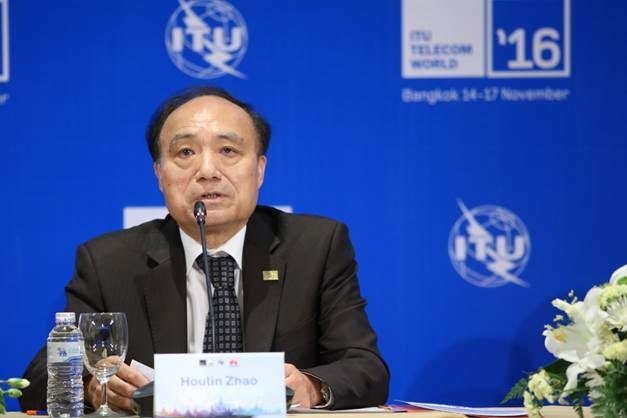 ICT technologies and broadband infrastructure have become core economic competencies, critical for national competitiveness. Hence, Government should make broadband an imperative policy and persistently work on it, said Houlin Zhao, secretary-general of the ITU.
ICT technologies and broadband infrastructure have become core economic competencies, critical for national competitiveness. Hence, Government should make broadband an imperative policy and persistently work on it, said Houlin Zhao, secretary-general of the ITU.
Zhao was addressing the gathering at the first Asia Pacific Exchange on Broadband Regulation and Policy jointly hosted by Huawei at ITU Telecom World 2016.
Development in the Asia-Pacific region has been very unbalanced, and there is great variation in connectivity across the region. While Japan, Republic of Korea, and Singapore are world leaders with broadband penetration of 95 percent, countries like Myanmar, Bangladesh and Cambodia lag behind with less than 5 percent broadband penetration.
More government and policy support was required to accelerate infrastructure growth and increase external connectivity, said Jin Yuzhi, vice president of Huawei Southern-East Asia Region.
“Broadband should be part of national strategy. Governments should encourage telecom investment and infrastructure development like submarine and land cables, data centers and other network development,”Jin said.
Huawei and the ITU launched their White Paper on Broadband Regulation and Policy in Asia-Pacific Region: Facilitating Faster Broadband Deployment to offer policy guidance. The white paper calls on governments to lead infrastructure development, to build alliances incorporating different government departments and private industry, and to develop broadband-friendly industrial policy.
Governments should improve infrastructure synergy and find ways to simplify the process of obtaining rights of way. They should require new buildings and renovation projects to include fiber connections, produce explicit standards for compensation for eminent domain, and start universal service funds.
Governments should legislate comprehensive frameworks for ICT, expand international fiber links, loosen restrictions on carriers, investors, and infrastructure builders, release more spectrum, and make more efficient use of spectrum resources.
editor@telecomlead.com
